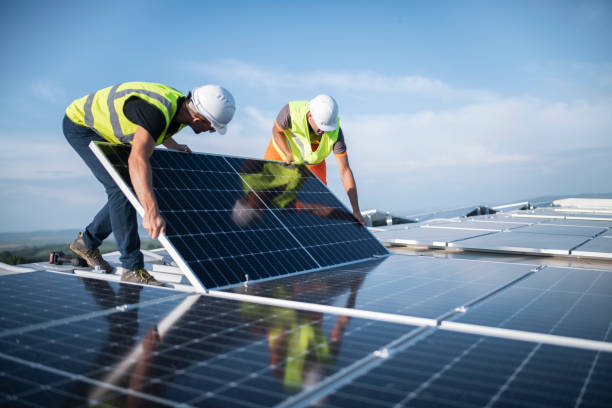
Installing solar panels on your roof is an excellent way to harness renewable energy, reduce your electricity bills, and contribute to a greener planet. However, to maximize the benefits of your solar energy system, it’s essential to ensure that your roof is in optimal condition. A thorough solar roof evaluation is crucial for maintaining the integrity of your panels and the roof itself. In this blog post, we will explore important tips for conducting a solar roof evaluation and the various inspection options available.
Why Solar Roof Evaluations Are Important
Before diving into evaluation tips, it’s vital to understand why a solar roof evaluation matters:
- Safety: A roof in poor condition can pose safety risks, especially when carrying the weight of solar panels.
- Efficiency: Any issues with your roof can affect the efficiency of your solar panels. Proper evaluation ensures optimal performance.
- Longevity: Regular assessments can extend the lifespan of both your roof and solar panels, helping you avoid costly repairs or replacements.
Tips for Conducting a Solar Roof Evaluation
1. Hire a Certified Roof Inspector
One of the best ways to ensure a comprehensive evaluation is to hire a certified roof inspector. They have the training and experience to identify potential issues. When searching for inspectors, look for:
- Certified Roof Inspector Near Me: Use local directories or search engines to find certified professionals in your area.
- Independent Roof Inspector: Consider hiring an independent inspector for an unbiased evaluation.
2. Conduct a Visual Inspection
Before calling in a professional, you can perform a basic visual inspection yourself:
- Check for Obvious Damage: Look for missing shingles, cracks, or signs of wear. Pay special attention to areas around the solar panels.
- Inspect for Debris: Remove leaves, branches, or any debris that might block sunlight from reaching your panels or lead to water accumulation.
- Look for Water Damage: Examine the interior of your home for any signs of leaks or water damage that may indicate roof issues.
3. Evaluate Roof Structure and Age
The age and structure of your roof significantly impact its ability to support solar panels. Consider the following:
- Roof Age: If your roof is nearing the end of its lifespan (usually 20-25 years), it may need repairs or replacement before installing solar panels.
- Roof Type: Certain materials (like clay or slate) can support solar installations better than others (like thatch or old shingles).
4. Check for Proper Installation of Solar Panels
Ensure that the solar panels are installed correctly. An improper installation can lead to leaks or damage:
- Solar Panel Inspection Near Me: Hire a specialist to assess the installation quality. They can check for issues like loose mounts or inadequate sealing.
5. Conduct Regular Inspections
Routine inspections are essential for long-term maintenance. Depending on your location, consider scheduling roof evaluations at least once a year or after severe weather events:
- Roof Inspection Cost: Research local roof inspection costs, as they can vary widely depending on your area and the inspector’s experience.
- Roof Inspection Tucson AZ / Phoenix AZ: If you’re in these areas, search for local experts who specialize in roofs in the region’s climate.
6. Utilize Roof Evaluation Technologies
Several technologies can enhance the evaluation process:
- Drones: Some companies use drones to perform roof inspections, offering detailed aerial views without the need for ladders or scaffolding.
- Thermal Imaging: This technology helps identify leaks and heat loss, providing insights that might not be visible during a standard inspection.
7. Understand Repair Needs and Costs
If your roof inspection reveals issues, it’s essential to understand the necessary repairs:
- Roof Inspection and Repair: Ask the inspector for recommendations on repairs and get estimates for the costs involved.
- Independent Roof Inspector Near Me: Seek multiple opinions from independent inspectors to ensure you’re getting the best advice and price.
8. Document Findings and Repairs
Keep detailed records of all inspections, repairs, and maintenance performed on your roof. This documentation will be valuable if you ever decide to sell your home or need to make warranty claims.
Conclusion
A thorough solar roof evaluation is essential for ensuring the longevity and efficiency of your solar energy system. By hiring a certified roof inspector, performing regular visual assessments, and utilizing modern technologies, you can ensure that your roof remains in top condition. Whether you’re in Tucson, Phoenix, or elsewhere, keeping your roof and solar panels well-maintained will maximize your investment in solar energy and contribute to a sustainable future.


